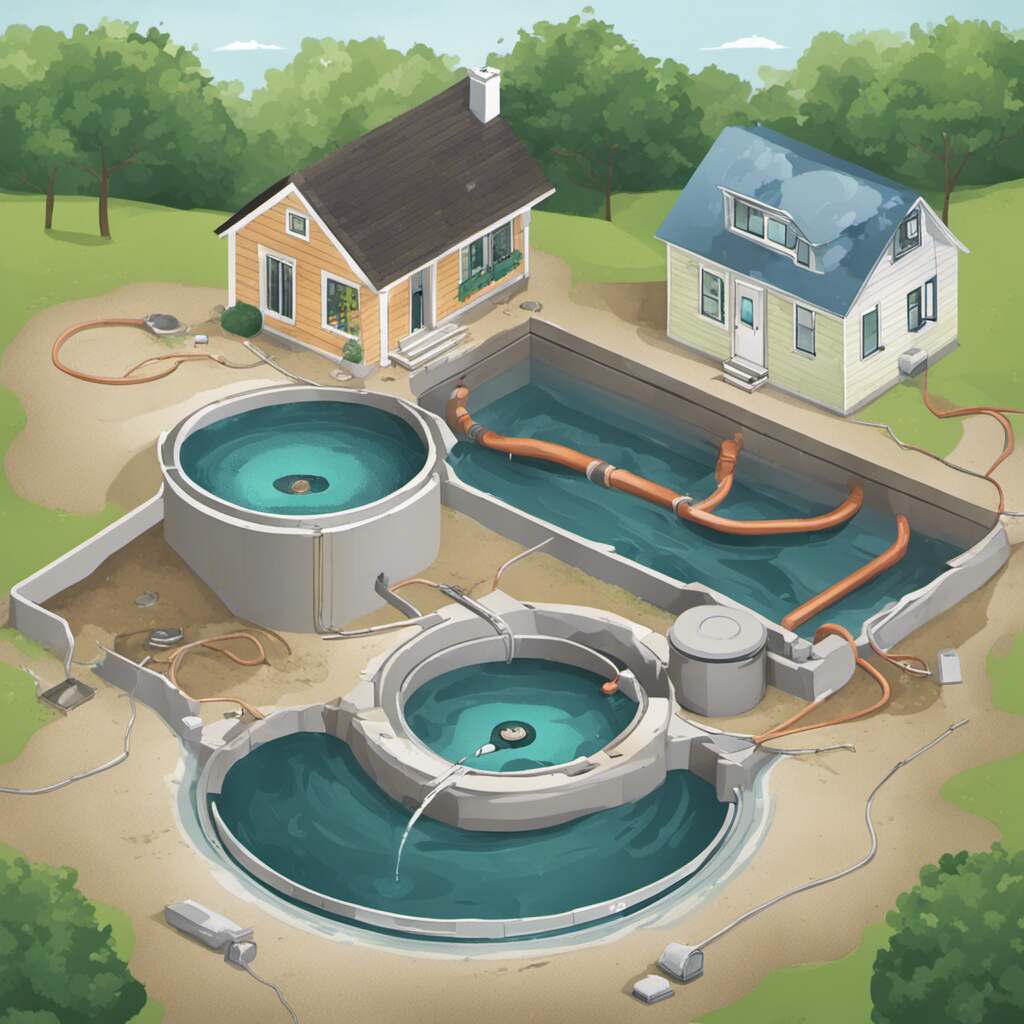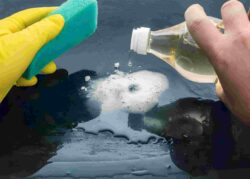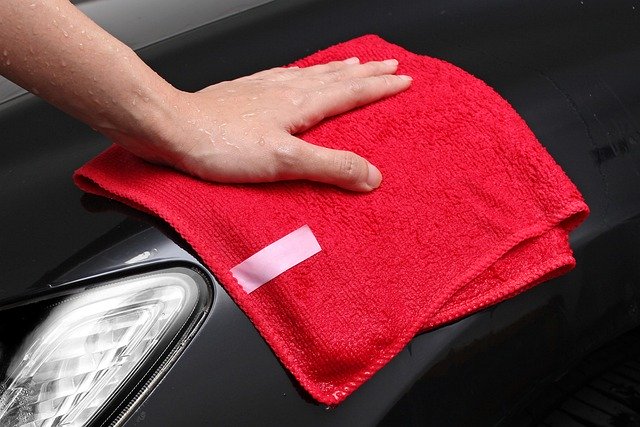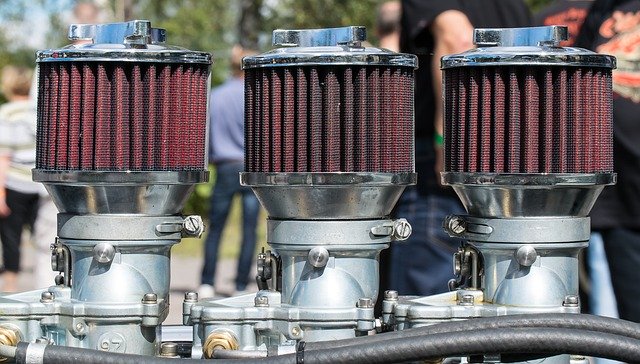Let’s face it – septic system maintenance isn’t exactly the most glamorous or exciting household chore, but it might just be one of the most important ones! Imagine, if you will, a day when your septic system backs up and brings all kinds of, um, ‘backlog’ with it! Not a pretty image, right? This nightmare scenario can be avoided altogether by knowing how to properly clean and care for your septic system.
Just like planning an exciting treasure hunt, we’re going to uncover the secrets of your septic tank, explore the murky depths of drain fields, and conquer the odorous, sludgy villains that threaten to clog your system! Armed with the right knowledge and tools, you’ll become the master of your home’s underworld before you know it!
Stay tuned, fearless homeowners! In this epic blog post, not only will we demystify the little-understood, often-neglected septic system, but we’re going to make it fun! Think of this as your very own ‘Septic System Cleaning Adventure.’ Who knows, we might make a home maintenance enthusiast out of you yet!
So, strap your gloves on, grab your tenacity, and don your spirit of adventure, because we’re diving headfirst into the world of septic systems and how to keep them flawlessly functional and gloriously clean. Get ready for a wild ride through your home’s septic system – one of the unsung heroes of your household, working silently behind the scenes to keep everything running smoothly. Let’s conquer this critical aspect of home maintenance together!
Importance of Cleaning a Home Septic Tank
Cleaning a home septic tank is essential for several reasons:
1. Preventing System Failures: Regular septic tank maintenance, including cleaning, helps prevent system failures and backups. Neglecting this task can lead to costly and unpleasant issues, such as sewage backing up into your home or yard.
2. Extending System Lifespan: Proper maintenance, including cleaning, can extend the lifespan of your septic system. A well-maintained system can last for many years, saving you money on replacement costs.
3. Protecting the Environment: Septic tanks can potentially leak or overflow if not properly maintained, which can lead to groundwater contamination and environmental damage. Regular cleaning helps prevent these issues and protects the surrounding environment.
4. Maintaining Property Value: A well-maintained septic system can add to your property’s value and appeal. Potential homebuyers are more likely to be interested in a property with a properly functioning septic system.
5. Compliance with Regulations: Many areas have regulations and guidelines governing septic system maintenance. Failing to clean your septic tank as required by local authorities can result in fines or legal consequences.
6. Health and Safety: A poorly maintained septic system can pose health risks to you and your family due to the potential exposure to harmful bacteria and pathogens. Cleaning the tank reduces these risks.
7. Odor Control: A septic tank that is not regularly cleaned may emit unpleasant odors, which can be a nuisance and affect your quality of life. Regular cleaning helps control these odors.
8. Cost Savings: Regular maintenance, including septic tank cleaning, is usually more cost-effective than dealing with emergency repairs or replacements. Cleaning is a preventive measure that can save you money in the long run.
9. Peace of Mind: Knowing that your septic system is in good working order provides peace of mind. You won’t have to worry about unexpected and unpleasant septic issues.
How to Clean and Maintain a Home Septic Tank
1. Regular Inspections are key
Like any critical aspect of your home, your septic system needs regular check-ups, typically recommended every one to three years. This varies according to the system’s size, the number of people in the household, and the amount of waste generated. During these inspections, a professional can identify any existing or potential problems and deal with them before they blow out of proportion.
2. Pump your Septic Tank Regularly
Surprises can be fun, but you definitely don’t want any from your septic system! Part of how to clean a home septic system involves periodic septic tank pumping, typically required every three to five years. A professional will remove the sludge and scum that doesn’t get broken down by the bacteria in your tank. Not only will this prevent clogging and damage, but it’ll also keep your system running smoothly.
3. Know what not to flush
A golden rule when wanting to keep your septic system clean and functionally efficient is being mindful of what goes down your drain. Many items are a big no-no when it comes to being flushed. They can disrupt the crucial microbiological balance in the tank or even clog up the system. This includes coffee grounds, cooking grease, disposable wipes, feminine care products, condoms, diapers, cigarettes, cat litter, paper towels, and of course, chemicals.
4. Keep an eye on your drain field
Your septic system doesn’t end with the tank. There’s an entire drainage field (also called a leach field) around it that allows wastewater to get absorbed into the soil. Be sure to protect it by never driving or parking vehicles on it, preventing planting trees nearby, and diverting rainwater drainage systems away from it.
5. Use Water Efficiently
It’s a little-known fact, but an average household can use up to 200 gallons of water every day. All of this water passes through your septic system. So, the smaller quantity of water that flows through your system, the better. Therefore, it’s recommended to use high-efficiency toilets, faucet aerators, shower flow restrictors, and generally conserve water wherever possible, aiding the longevity of your septic system.
6. Regularly Maintain Your System
The chorus of this exciting cleaning concert is regular maintenance. Keeping your system healthy prevents costly repairs and prolongs its life, saving you money in the long run. This involves cleaning, pumping, and inspecting the tank, along with a careful eye on the drain field, and constant consciousness of your water usage.
7. Hire Professionals
Now, this doesn’t mean you can’t be excited about how to clean your home septic system yourself. It’s more about knowing that there are certain things you might need professionals to handle, like pumping the tank or addressing significant issues that arise. Building a relationship with a good septic service provider can give you that extra peace of mind.
8. Use Bacterial Additives
There are specific bacteria-based products available in the market that can help maintain the optimum bacterial balance necessary for your tank to function correctly, helping break down waste and keep the system clean.
9. Protect Your System from Damage
This includes not building anything over your tank or drain field, not covering it with asphalt or concrete, or using it as a playing area.
Remembering these steps and doing regular check-ups can bring about an enthusiastic satisfaction that springs from actively tending to your living environment. However, if you’re wondering why you should be excited about knowing how to clean a home septic system, the answer lies in the idea of “prevention is better than cure.”
Having a well-maintained septic system means:
– A significantly decreased likelihood of disasters – can you imagine a sewage backup in your house? No, thank you!
– You can potentially add years to your system’s life expectancy – saving money always brings excitement!
– You’re indirectly protecting your local environment. A septic system leak could pollute local water sources, harm the wildlife, and degrade your property value.
Final Thought
In essence, by now, it should be clear just how essential it is to be educated about and excited for how to clean a home septic system. Adhering to these guidelines could save you from some serious inconveniences and unexpected costs. And honestly, nothing beats the winning feeling of being a self-sufficient, environmentally conscious homeowner. So, let’s embrace this vital part of homeownership and embark on an exciting journey towards a functioning, clean septic system. Because taking smart care of the less glamorous aspects of our homes is equally as exciting as decorating our living rooms!














